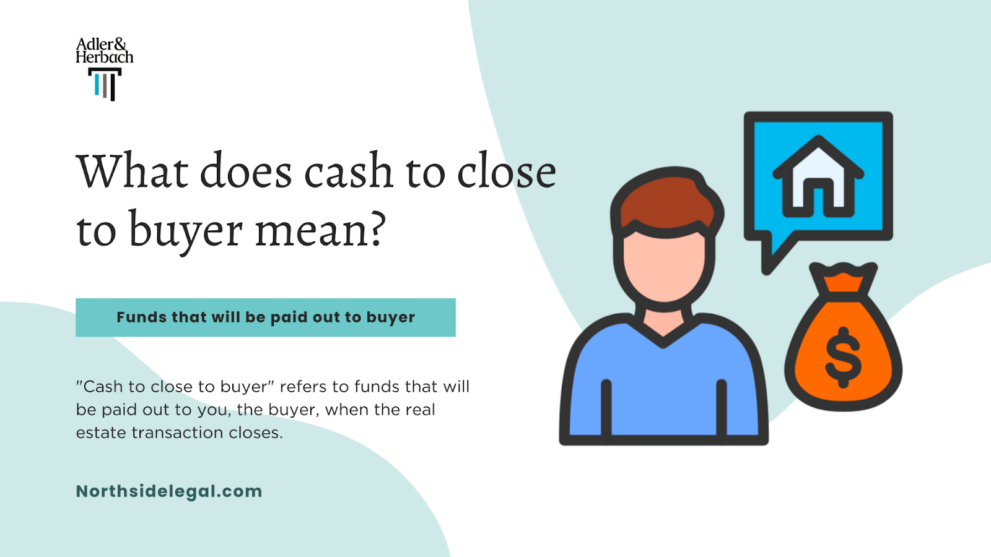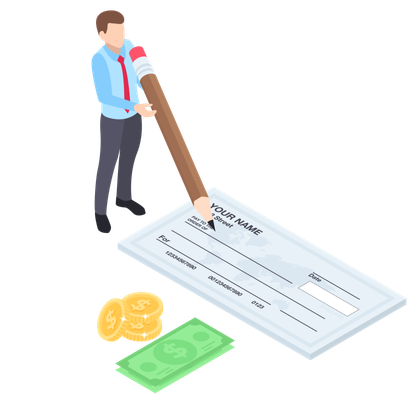When going through the mortgage process, you may come across the term “cash to close to buyer.” This refers to money being paid back to you at closing, rather than money you owe. But what exactly does this mean?
What Does “Cash to Close To Buyer” Mean on a House?
“Cash to close to buyer on a house” refers to the amount of money a homebuyer receives during a property transaction closure. It could be funds obtained from cash-out refinancing, seller credits, or a lender refund due to the loan amount being higher than the home’s purchase price. Essentially, it’s a refund given at closing.
Here are some key points:
- It is money going back into your pocket, not money you owe.
- It may show up as a negative number for “cash to close” or “cash to close to buyer” on documents.
- It represents excess funds you’ll receive at closing.

There are a few common scenarios where this occurs:
1. Refinancing With Cash Out
When you refinance and take cash out of your home’s equity, the cash to close ‘to buyer’ figure reflects this. For example:
- Home value: $300,000
- Current mortgage: $200,000
- New refinance amount: $250,000
In this case, the cash to close would show ($50,000). This means $50,000 cash will be paid to you when the refinance closes.
2. Seller Credits
Sometimes sellers offer credits to the buyer at closing to cover closing costs or other expenses. This could result in cash back to the buyer, shown as cash to close to buyer.
For example, a seller credit of $5,000, assuming the purchase was otherwise fully covered, would make the ‘cash to close’ amount ($5,000).
Why Would I Get Money Back at Closing?
There are a few key reasons you may get money back when you close on a mortgage transaction:
- Refinancing with cash out – Taking equity out of your home through a refinance results in cash proceeds.
- Seller credits – Sellers sometimes offer credits to cover closing costs.
- Loan amount greater than purchase price – Occasionally when refinancing, even if you didn’t intend to cash out, the new loan amount is higher than what you owe on the home.
The cash back to you helps offset closing costs or gives you extra money in your pocket. But it’s important to discuss these specifics with your lender to understand where the cash to close to buyer amount comes from.
How Is Cash to Close to Buyer Calculated?
The cash to close to buyer figure is determined based on the specifics of your real estate transaction. Here are some key factors:
- New loan amount – Is the new mortgage greater than your balance owed? The difference results in cash back to you.
- Seller credits – Any credits offered by the seller to help with closing costs or other expenses.
- Closing costs – The total closing costs, which may be offset by seller credits.
Your lender will tally up all of these factors to come up with an estimated total of funds being paid to you at closing. Be sure to ask your lender to explain the details and calculations so you understand the cash to close ‘to buyer’ amount.

What Happens If My Cash to Close Changes on Closing Day?
In some cases, the final cash to close amount may end up different than the initial estimates:
- Interest rate changes – If your rate differs from what was estimated, your cash back amount may change.
- Closing cost adjustments – Final closing cost totals could differ from the loan estimate.
- Seller credit changes – The seller credit could be adjusted before closing.
Stay in touch with your lender so you understand any changes to cash to close.
Get more clarification on
- What is cash to close?
- Difference between Cash to close To / From borrower
- What is Cash to close To Borrower in Refinance?
- How to calculate cash to close?
Cash to Close to Buyer – Key Takeaways
- It represents proceeds paid to you at closing, not money you owe.
- Common scenarios are refinancing with cash out or seller credits.
- The amount is estimated initially but may change due to interest rates, closing costs, seller credits, etc.
- Discuss the specifics with your lender so you fully understand this amount.
Knowing what ‘cash to close to buyer’ refers to can help you financially prepare for closing. Be sure to clarify any questions with your lender early on.


